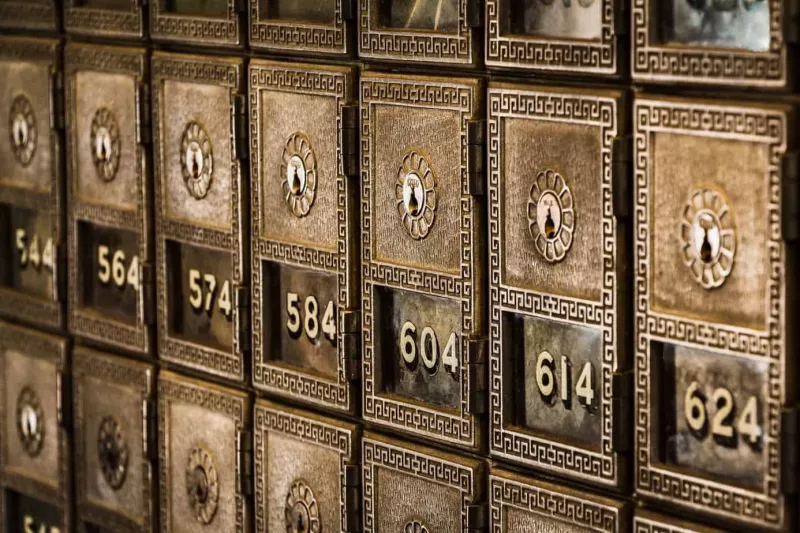1. Paper Wallets

Paper Wallets can be created easily, but it requires a bit of technical knowledge and a high level of caution. By definition, it's a piece of paper where you have printed your private and public keys. Besides it mostly also includes QR codes of the keys.
It's the cheapest and one of the safest ways to store your cryptocurrency, as it is for free and you store your wallet offline and not on your computer.
Unfortunately, not all projects offer this method. For Bitcoin and some Altcoins, you can use the following wallet generator. If you want to be 100% sure that no other person has access to your wallet, we recommend unplugging the internet connection when generating the wallet.
| Security | 9 out of 10 |
| Usability | 2 out of 10 |
| Costs | $ 0 |
2. Hardware Wallets
Hardware wallets are hardware devices that are built explicitly to store and handle your private keys and public addresses. 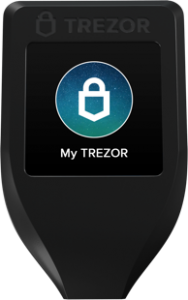
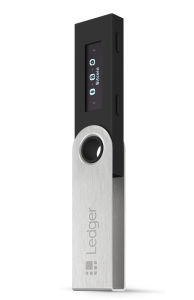
It's a USB device with an OLED screen and buttons to navigate on the device and to interact with the desktop software. Once you have set up your hardware wallet you will get a unique passphrase, which helps you to restore your wallet, in the case it gets broken. Keep those words safe and don't store them on your computer.
The price range of hardware wallets is between $55 and up to $169. It's definitely worth investing that kind of money as it is the safest way to store your cryptocurrencies. The most known Hardware Wallets are Ledger Nano S ($65) and Trezor One ($55), which are basically the starters. More advanced Hardware Wallets are Ledger Nano X ($130) and the Trezor Model T ($190), the main difference is that you can basically just store more different types of cryptocurrencies.
| Security | 10 out of 10 |
| Usability | 8 out of 10 |
| Costs | $ 55 - $ 169 |
3. Desktop Wallets
Desktop wallets for cryptocurrencies are programs for your home computer. Any cryptocurrency, at least serious ones, has its own desktop wallet. The security of a desktop wallet relies on the security of your computer. If you want to use that type of method we would recommend you to follow basic security measures on your computer and have a firewall installed. Desktop Wallets which we can recommend
| Security | 5 out of 10 |
| Usability | 8 out of 10 |
| Costs | $ 0 |
4. Mobile Wallets
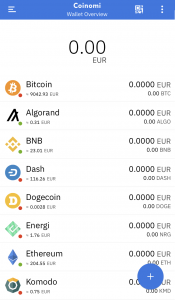
Mobile Wallets are the most widespread in the cryptocurrency market. These wallets are applications for your IOS or Android phone. Mostly they are very easy to use. If you do decide to use a mobile wallet, you should consider the following criteria. Use a wallet where you are in control of your private keys, there should be an active development community and there should be security features like backup and restore features. Unfortunately, this form is one of the most insecure ways to store your cryptocurrency, as these are hot wallets and they are not immune to the bad acting of the developers. Mobile Wallets which we can recommend
| Security | 3 out of 10 |
| Usability | 9 out of 10 |
| Costs | $ 0 |
5. Web Wallets
Web wallets are one of the most insecure ways to store cryptocurrencies because they are hot wallets - they are always connected to the Internet and can be accessed with a URL. There are two different types of web wallets - so-called hosted wallets and non-hosted wallets.
Hosted wallets are websites which store the private key for you, it's the less safest way to store your crypto as there could be hacking attempts to the platforms and all your funds can get lost. Examples are Coinbase or Bitpanda.
| Security | 1 out of 10 |
| Usability | 10 out of 10 |
| Costs | $ 0 |
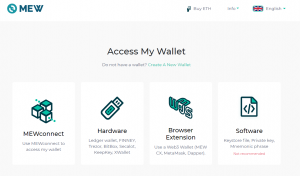
Non-hosted wallets are websites that give you the possibility to access your saved private key, the most famous examples are MyEtherWallet and MetaMask. Here you should always make sure that you are on the right website, as many scammers copy the websites and try to phish you.
| Security | 5 out of 10 |
| Usability | 7 out of 10 |
| Costs | $ 0 |
Conclusion
As you can see, there are many different methods to store your cryptocurrencies. You should choose based on your field of application. Our recommendation is to purchase a hardware wallet, as this is the most secure method. The invested dollars are definitely well invested here.
Similar Articles

Phantom Wallet is a non-custodial Web3.0 wallet for the Solana (SOL) blockchain.

